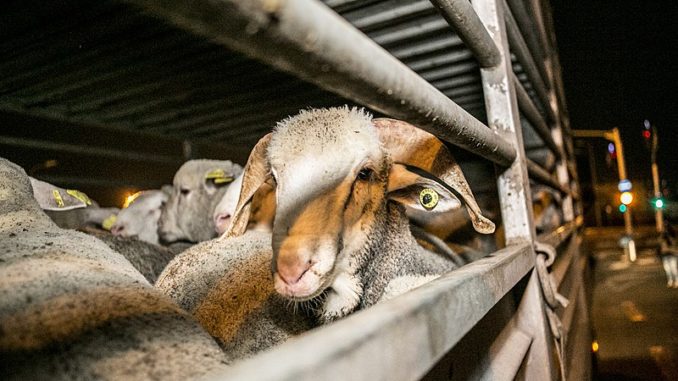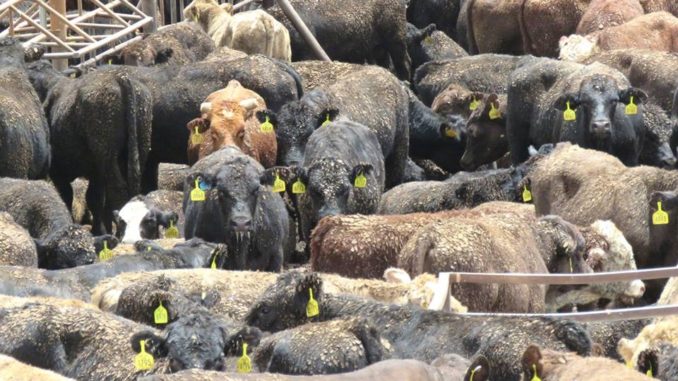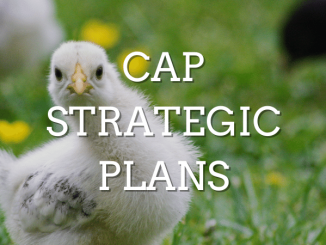
The European Commission will not ban the export of live animals to non-EU countries in its forthcoming proposal on the protection of animals during transport, according to a leaked draft, instead opting to double down on reduced journey times and on space allowances. Natasha Foote has the scoop.
The proposal, due to be presented 6 December, is one of the promised four that were originally supposed to make up the EU’s overhaul of the animal welfare legislation, as set out in the EU’s flagship food policy, the Farm to Fork strategy.
However, with EU elections looming and amid a concerted pushback from the right of the Parliament, the proposal has ended up being the only one left on the Commission’s menu still due to be published before the end of its mandate.
Animal Welfare Leakage
Despite staunch support for such a move from animal welfare groups and citizens, the leaked draft text dismisses the idea of placing a ban on the export of live animals to third countries.
This is because the trade “would be replaced by other countries of origin with suboptimal animal welfare, economic and environmental results,” the draft proposal reads. Instead, the proposal foresees the “possibility of exporting under stricter conditions”.
Some 1.4 billion animals are transported each year with a cross-border movement, both between EU member states and to third countries. This means that it has a significant impact on the “functioning of the internal market”, the draft points out.
Maintaining that the transport of live animals is an “essential part of the agri-food chain,” the
proposal instead focuses on setting stricter conditions for export and transport, including increased space allowances, real-time tracking and reduced journey times.
In the case of animals intended for slaughter, long journeys are defined as “those lasting longer than 9 hours”, as per the latest guidance issued by the EU’s food safety authority (EFSA).
According to data from the European Commission, over a third of live animals’ journeys in the EU are between eight and 24 hours long. The number is even higher for horses, cattle, sheep and goats, which accounts for more than 40% of journeys.
This “simplification” is aimed “to strengthen the implementation of the journey times and […] to limit the journeys of all animals for slaughter,” the proposal sets out, adding that evidence suggests most slaughterhouses for different species are available within a 9-hour journey.
Meanwhile, exporting under stricter conditions – including rules on maximum journey times for road transports and stricter maritime safety requirements for livestock vessels – would mean “significant improvements to animal welfare,” the draft text maintains.
Stressing the obligation of EU transporters to protect animals during transport “does not end at the external borders” of the EU, the text sets out that the regulation should “apply to the transport of animals regardless of whether the establishment of destination is in the territory of the Union or in a third country”.
The proposal plans to phase in these changes to allow actors to “adapt gradually”, offering a 5-year transition period for journey times, space allowances, exports and real time tracking, reduced to 3 years for new rules on the transport of cats and dogs.
In this way, it “seek[s] a balance between protecting the welfare of animals during transport whilst ensuring the economic viability of the sector”.

Perspectives
The news is unlikely to please animal welfare groups, who have long been campaigning for an end to the export of live animals.
“The transnational nature of live exports makes it especially challenging to protect the welfare of animals, and this is why we ask for a ban on live exports to non-EU countries,” Reineke Hameleers, CEO of Eurogroup for Animals, said in a statement on Tuesday (28 November), calling for a switch to a trade in meat and carcasses only.
The news comes on the back of a new report on long-distance trade in farm animals published by the group together with Compassion in World Farming this week, which found that as many as 44 million farmed animals a year – including unweaned calves and lambs – suffer journeys lasting up to three weeks.
This was put down to “inadequate and misleading official records” which are “masking the true horror and scale of the EU’s long-distance trade in farmed animals,” the group said. “The immense scale of suffering highlighted by this investigation cannot be ignored – the Commission must come forward with a more ambitious regulation,” Hameleers said.
Likewise, the 2023 Special Eurobarometer found that eight out of ten Europeans think the travel time for the commercial transport of live animals within or from the EU should be limited, while nine out of ten people believe it’s important to protect the welfare of farmed animals.
However, the idea of banning long-distance journeys and live animal exports to third countries has proved a bone of contention within the farming community.
This is because transportation of live animals “plays a vital role in maintaining the economic strength and social vibrancy of territories, with main production areas in many cases located in depopulating or almost depopulated areas”, European farmers’ association COPA-COGECA said previously in a statement.
Likewise, a coalition of nine EU agriculture ministers joined forces to push back against a potential ban on live animal transport to third countries back at the beginning of the year.
Portuguese minister Maria do Céu Antunes, who led the coalition, said at the time that the revision’s goal should instead be ensuring “high levels of animal welfare in intra-community trade and in the export of live animals” rather than a total ban.
More
We Can’t Eat Promises! Good Food Good Farming month culminates in Brussels protest
Letter From The Farm | A Conscientious Objector to the Meat Industry
A Sustainable Food Systems Law – Important for People & Planet, Stalled by the Commission
Letter From The Farm | Health, Husbandry & High Quality Meat
Covid19, Meat Processing Plants and the Limits of the Intensive Farming Model
Do we Have the Tools to Choose Sustainable Meat? #LivestockDebate
New Research Shows 50 Year Binge On Chemical Fertilisers Must End To Address The Climate Crisis





